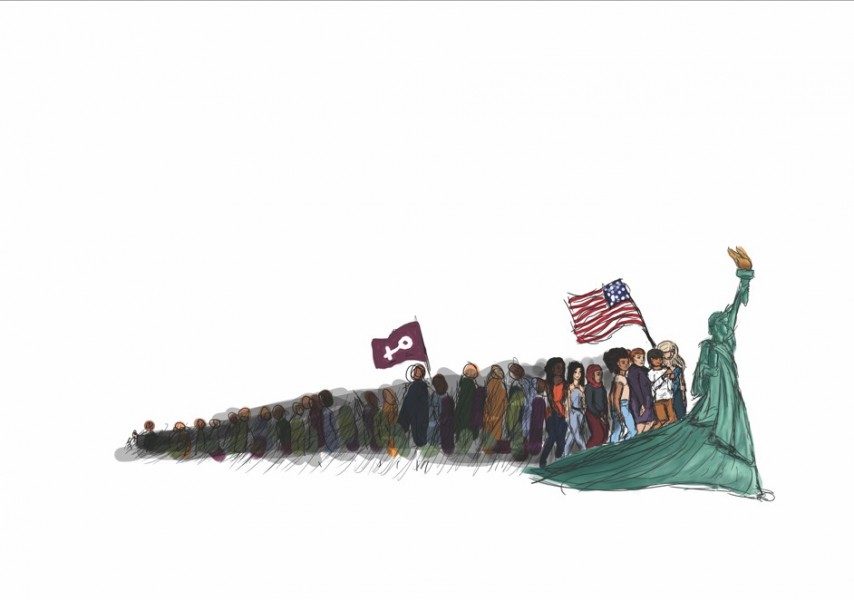Intersectional activism crucial to success of Women’s March
This is an opinion article and does not necessarily reflect the views of the Tulane Hullabaloo.
For years, identity politics has played a major role in the American political system in regard to how issues are presented to lawmakers. Groups of people established around race, ethnicity, gender, sexual orientation and other identities unite to either support or fight proposed policies that could help or hinder them. In 2016, identity politics served as an influencing factor in the presidential election. President-elect Donald Trump provided the nation with political rhetoric that mobilized marginalized groups fearing what a Trump presidency could mean for them. Now that Trump will be inaugurated on Friday, groups established around identity politics should continue to do everything they can to stand up for what they believe in.
The Women’s March on Washington is an example of identity politics in action. On Saturday, women’s rights advocates will gather in cities all over the country, including New Orleans, to protest Trump’s inauguration and his previous sexist actions and rhetoric. The event is meant to “send a bold message to our new administration on their first day in office, that women’s rights are human rights,” according to the event description for Women’s March New Orleans on Action Network.
The goal of identity politics is for groups to represent alternative perspectives to mainstream issues. While some claim that this form of political representation is divisive, identity politics is necessary for the expression of political ideas since some voices might be neglected in the public sphere. The Women’s March allows women to express their grievances with a president-elect who has been overtly sexist.
While identity politics has the potential to add diversity to political expression, there has been criticism that the Women’s March is just another example of “white feminism.” That is, the event does not take into consideration the intersectional lines that demonstrate the great breadth of diversity among women. Women of color must decide whether to support other women or their racial group or ethnic group.
Conservative women may decide to participate in the Women’s March, despite a Republican taking office.
Though the Women’s March does not fully take into account the diversity of American women, the event is still an effective use of identity politics, symbolizing how all marginalized groups, not just women, need to make their grievances known to our new administration. In the future, other groups should look at the Women’s March as an example. Activists should also critique this movement and use it as a tool to better include intersectionality in their cause.
Daniel is a junior at Newcomb-Tulane College. He can be reached at [email protected].
Your donation will support the student journalists of Tulane University. Your contribution will allow us to purchase equipment and cover our annual website hosting costs.




Leave a Comment